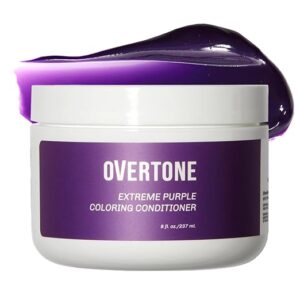Dealing with an itchy scalp can be frustrating, especially when you’re also focusing on maintaining the health of your 4C natural hair. An itchy scalp is a common issue that many people with 4C hair experience, but the good news is that it’s treatable! In this post, we’ll dive into the causes of an itchy scalp, how to treat it, and the best products to soothe and nourish your scalp while keeping your 4C hair in its best shape.
Feel like your hair has been the same length forever, I’ve an Ebook that will help you grow your hair healthier, longer and thicker. Grab your copy here… Also, check out all the Ebooks,guides and journals that will go a long way in your hair care journey here.
Table of Contents
7 Gentle Ways to Soothe Your 4C Scalp at Home
Why is an Itchy Scalp So Common with 4C Hair?
Before we jump into the solutions, it’s important to understand why an itchy scalp happens in the first place. Many people with 4C natural hair experience scalp discomfort due to several factors:
- Dryness: 4C hair naturally tends to be dry because the tight coils make it difficult for natural scalp oils to travel down the hair shaft. If your scalp is dry, it can become itchy and flaky.
- Product Buildup: Using heavy oils, creams, or styling products can lead to buildup on the scalp. Over time, this buildup can clog the pores and cause irritation, leading to itching.
- Dandruff and Seborrheic Dermatitis: These are scalp conditions that result from an overgrowth of yeast or fungus on the scalp, causing flakes, itching, and sometimes redness.
- Protective Styles: While protective styles like braids and twists are excellent for hair health, they can sometimes cause tension or trap sweat and dirt, leading to scalp irritation.
- Scalp Sensitivity or Allergic Reactions: Sometimes, ingredients in hair products can irritate the scalp, causing itching and discomfort.
How to Treat an Itchy Scalp on 4C Hair
Now that we understand the common causes of an itchy scalp, let’s discuss how to effectively treat and prevent it. Here are some simple but effective steps you can incorporate into your routine to relieve scalp irritation.
1. Start with a Clean Slate: Clarify Your Scalp
One of the best ways to address an itchy scalp is to ensure that your scalp is free from product buildup. Regular washing with a clarifying shampoo will remove any residue left by styling products, oils, or environmental pollutants that may clog your pores and cause itching.
- How often to clarify: Aim to clarify your scalp every 4-6 weeks, depending on how much product you use. However, if you frequently use heavy products like gels, butters, or oils, you may need to clarify more often.
Recommended Clarifying Shampoos:
- SheaMoisture African Black Soap Bamboo Charcoal Deep Cleansing Shampoo: This shampoo is excellent for detoxifying the scalp and removing buildup without stripping your hair of moisture.
- Camille Rose Clean Rinse Shampoo, with Honey and Peppermint to Moisturize and Clarify: A great option for gently clarifying the scalp while keeping your hair hydrated.
2. Keep Your Scalp Moisturized
Just like the rest of your skin, your scalp needs to stay moisturized. If your scalp is dry, it’s more likely to become itchy and flaky. After washing your hair, apply a light oil or scalp moisturizer to lock in hydration.
- Scalp Oils to Try:
- Jamaican Black Castor Oil: Known for its thick consistency, it’s perfect for sealing in moisture and soothing dry, irritated scalps.
- Tea Tree Oil: An antifungal and antibacterial oil, tea tree oil can relieve itching and reduce dandruff when diluted with a carrier oil (like olive or jojoba oil).
How to Apply:
Massage the oil into your scalp in sections, making sure to focus on areas where the itching is most intense. Scalp massaging also increases blood circulation to your scalp, which promotes hair growth and helps reduce scalp irritation.
3. Use a Gentle, Itch-Relief Shampoo
If you’re dealing with persistent itching, switching to a shampoo that’s specifically designed to relieve itchiness can be a game-changer. Look for shampoos that contain soothing ingredients like peppermint, tea tree oil, or salicylic acid.
Recommended Itch-Relief Shampoos:
- MAJESTIC PURE Apple Cider Vinegar Shampoo – Restores Shine & Reduces Itchy Scalp, Dandruff & Frizz: Detoxify and give your hair the cleanse it needs after a rough day with Majestic Pure Apple Cider Vinegar Shampoo. It helps dispose of scalp build-ups and works towards bringing back your natural shine.
- As I Am Dry & Itchy Scalp Care Olive & Tea Tree Oil Shampoo: This shampoo is formulated to treat dandruff, soothe the scalp, and eliminate flakes, making it ideal for itchy scalps.
4. Deep Condition Regularly
Deep conditioning is already a crucial step in maintaining the health of 4C natural hair, but it can also help to combat scalp issues. Dry, brittle hair can make the scalp more prone to irritation, so ensuring your hair and scalp are properly moisturized is essential.
How often to deep condition: Aim to deep condition your hair once a week, using a product that hydrates both the scalp and hair. Some deep conditioners contain ingredients that can also soothe the scalp, like aloe vera or peppermint oil.
Recommended Deep Conditioners:
- TGIN Honey Miracle Hair Mask: Known for its moisture-boosting properties, this deep conditioner softens hair while also soothing an itchy scalp.
- Camille Rose Algae Renew Deep Conditioner: This conditioner nourishes both the hair and scalp, making it an excellent choice for people struggling with dryness and itching.
5. Try Scalp Massages with Essential Oils
Scalp massages not only feel amazing, but they also help improve blood circulation to the scalp, which can relieve itching and promote hair growth. You can enhance the benefits of a scalp massage by using essential oils known for their soothing properties.
Essential Oils to Use:
- Peppermint Oil: Its cooling sensation relieves itching almost instantly and helps stimulate blood flow to the scalp.
- Lavender Oil: This essential oil is known for its calming properties and can help reduce inflammation and itching.
How to Use:
- Mix a few drops of peppermint or lavender oil with a carrier oil (like coconut or olive oil).
- Gently massage the mixture into your scalp for 5-10 minutes, focusing on the areas that are particularly itchy.
- Do this 2-3 times a week for best results.
6. Switch to Protective Styles that Are Scalp-Friendly
While protective styles like braids, twists, and wigs are great for maintaining length and reducing manipulation, they can also contribute to scalp itchiness, especially if they’re installed too tightly. If you notice that your scalp becomes itchy after installing a protective style, you may need to take a gentler approach.
- Opt for looser braids or twists to reduce tension on your scalp.
- Don’t keep protective styles in for too long—ideally no more than 4-6 weeks—to allow your scalp to breathe and prevent buildup.
- When wearing protective styles, spritz your scalp with a moisturizing spray or leave-in conditioner to keep it hydrated.
7. Use a Scalp Treatment for Instant Relief
When itching becomes unbearable, sometimes you need an immediate solution. Scalp treatments can provide instant relief from itchiness while treating underlying issues like dandruff or dryness.
Recommended Scalp Treatments:
- Design Essentials Peppermint & Aloe Soothing Scalp Tonic: This lightweight scalp tonic is perfect for relieving itching and dryness. It’s formulated with aloe and peppermint to provide a cooling effect and moisture.
- Cantu Shea Butter Tea Tree & Jojoba Hair & Scalp Oil: This scalp oil contains tea tree and jojoba oils, both of which soothe irritation and nourish the scalp.
How to Use:
- Apply directly to the scalp, especially in areas where the itching is worst.
- You can use these treatments while wearing protective styles or on wash days after shampooing.
8. Watch What You Eat
Believe it or not, what you eat can affect the health of your scalp and hair. A healthy diet rich in vitamins and nutrients supports scalp health. Here are a few key nutrients to incorporate:
- Omega-3 Fatty Acids: Found in fish like salmon, as well as flaxseed and chia seeds, omega-3s help reduce inflammation and keep the scalp moisturized.
- Vitamin E: This antioxidant promotes scalp health by improving blood flow and preventing dryness. You can find it in foods like almonds, spinach, and avocados.
- Zinc: Zinc deficiencies are linked to dandruff and scalp issues. Make sure to include zinc-rich foods like pumpkin seeds, lentils, and chickpeas in your diet.
Best Products for Treating Itchy Scalp on 4C Hair
Here’s a quick roundup of the best products you can use to relieve an itchy scalp while caring for your 4C hair:
Clarifying Shampoos:
- SheaMoisture African Black Soap Bamboo Charcoal Deep Cleansing Shampoo
- Camille Rose Clean Rinse Shampoo, with Honey and Peppermint to Moisturize and Clarify
Itch-Relief Shampoos:
- MAJESTIC PURE Apple Cider Vinegar Shampoo – Restores Shine & Reduces Itchy Scalp, Dandruff & Frizz
- As I Am Dry & Itchy Scalp Care Olive & Tea Tree Oil Shampoo
Deep Conditioners:
Scalp Treatments:
- Design Essentials Peppermint & Aloe Soothing Scalp Tonic
- Cantu Shea Butter Tea Tree & Jojoba Hair & Scalp Oil
Essential Oils:
- Peppermint Oil (for cooling relief)
- Tea Tree Oil (antibacterial and antifungal)
An itchy scalp doesn’t have to be a permanent part of your 4C hair journey. With the right products, a solid routine, and a focus on keeping your scalp clean and moisturized, you can keep itching at bay while nurturing healthy, thriving hair. So go ahead, try these remedies, and enjoy the relief and comfort that comes with a healthy scalp!




